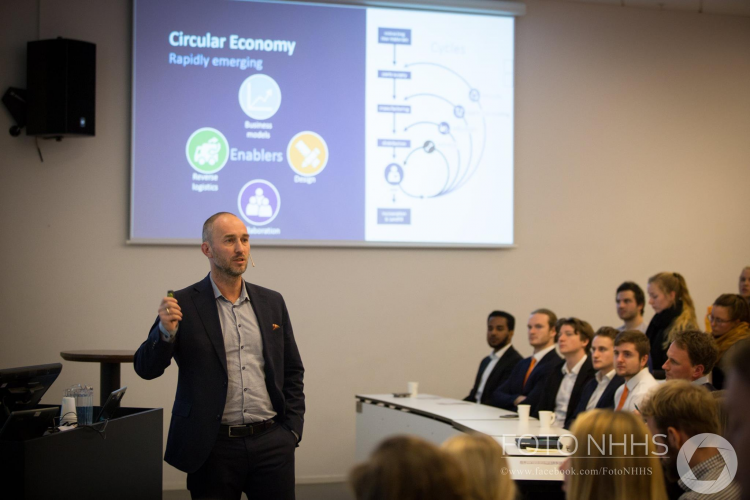Nyhet! Vi har lansert ny nettside. Del gjerne feedback enten på epost eller på Jodel.
 Annonsere?
Annonsere?
Nyhet! Vi har lansert ny nettside. Del gjerne feedback enten på epost eller på Jodel.
 Annonsere?
Annonsere?

Since more than one year, Martin Lund has been the leader of NHHS Energi, which aims “to educate fellow students about current topics in the energy industry”. To achieve these goals they arrange conferences and talks with leaders and experienced people from the industry. The Energy Day almost has a traditional status and NHH and has been hosted in the spring since 2007 with each event attracting in between 50 and 150 participants during the last five years.
Promising speakers with different backgrounds
According to the leader of NHHS Energi, “the team decided on offshore renewables because] believed it would make the most interesting topic for the students at NHH and since the potential of offshore wind and other projects has increased due to better technology and economies of scale they wanted to explore the potential of the industry.” Martin Lund is “very happy with the speakers this year with a mix of young talent and experience, with different backgrounds from academia, start-ups and well-established companies”. According to him, “students with interest within energy and sustainability should attend Energy Day 2019 to learn more about the different possibilities and projects that are emerging within offshore energy production.”

The topic of offshore renewable energy
When people think about offshore renewable energy solutions, probably wind power comes to most of their minds at first. In fact, wind power is the most advanced and common offshore renewable energy technology with a high future growth potential. The IEA projects the amount of offshore wind capacity to almost triple between 2017 and 2023 up to 52 GW. Norway’s energy company Equinor contributed to the wind power industry’s development with introducing the innovative Hywind project, offering a floating wind power generation solution and therefore, the possibility of producing energy in the deep oceans as well.
However, besides wind power, there are further possible options in the offshore renewable energy industry such as wave, tidal and solar energy solutions. Although these technologies mostly are still in early development phases, further improvements towards economically viable large-scale solutions could lead to a considerable market potential in the future.
Renewable energy solutions in general are on the rise, which is necessary in order to be able to achieve international climate targets, written down for instance in the Paris Agreement or the UN Sustainable Development Goals. However, is it desirable to cover large-scale areas with solar panels and wind turbines as our land resources are limited? Offshore renewable energy generation could play an important role in solving this problem.
Sources:
Bureau of Ocean Energy Management (BOEM), Equinor, International Energy Agency (IEA), The Institute of Marine Engineering, Science and Technology (IMAREST)
Also read: